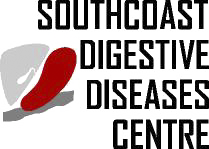Irritable Bowel Syndrome: What’s New in 2011?
I would agree if you were to say irritable bowel (IBS) is not the sexiest topic in medicine. Indeed it would not surprise me if IBS had made the bottom ten at an academy awards night for medicine. Yet IBS constitutes at least 30% of all gastrointestinal consultations. This year’s Digestive Diseases Week at Chicago has high lighted new developments in IBS which I would like to share with you.
Diarrhoea type IBS:
The link to intestinalbacteria has emerged inthe last 2 years based on the results of lactulose breath test, small bowel aspirate culture and the fact that infectious gastroenteritis (e.g.,salmonella, E.Coli, Campylobacter) in- crease the risk of subsequent IBS 7 fold. Antibiotic treatment with Rifaximin (not available in Australia) , neomycin (Fig 2) and metronidazole could relieve most symptoms for IBS for 3 months. For neomycin, I use 500mg three times a day for 2 weeks. This treatment can be repeated at several months intervals or substituted with metronidazole.
Loperamide improve stool frequency and diarrhea but not ab- dominal pain or bloating.
Antispasmodics improve pain and overall symptoms of IBS giv- en 30 min before food.
Tricyclic antidepressants such as amitriptyline improve pain and overall symptoms of IBS .
SSRI group of drugs have been found to be useful where IBS is thought to be associated with somatic pain syndrome or psychological contribution to IBS symptoms are suspect- ed.
Constipation type IBS: Fibre such as psyllium, and to a lesser extent bran, improve constipation with partial improvement of pain and bloating. Overuse can aggravate pain and bloating. Polyethylene Glycol based laxatives such as glycoprep/movicol etc. im- prove constipation but not pain. Lubiprostone, a prostaglandin, not available in Austral- ia, improves all symptoms of constipation type IBS.

